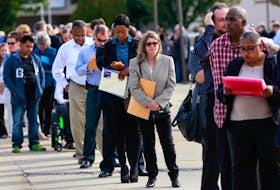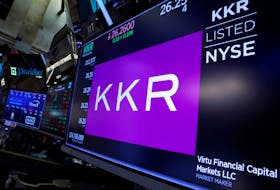By Leigh Thomas
PARIS (Reuters) - Lockdowns in France and Italy are weighing down public mobility more than in other European countries, according to high- frequency data compiled by Reuters that suggest the two economies will take a correspondingly bigger hit.
Data ranging from use of Apple maps apps to Google's user location history are proving vital tools for governments, central bankers and investors trying to gauge the economic impact of restrictions, weeks in advance of conventional indicators like consumer spending or industrial output.
The French official stats agency INSEE has found that the data Google can collect on how much time people spend at home is particularly closely correlated with how much an economy has slowed during the crisis.
And while the impact is nowhere near as pronounced as during the first set of more draconian lockdowns this year, that data suggest that people in France, Italy and Britain are currently seeing the biggest increases in the time spent at home.
Paris and Milan have also seen the sharpest reductions in traffic congestion, and Italy the steepest decline in public transport usage, ahead of the Netherlands, UK and France.
Graphic: Time spent at home in Europe's biggest economies - https://graphics.reuters.com/EUROPE-ECONOMY/yzdvxkaojpx/chart.png
Germany's "lockdown lite" imposed on Nov. 2 has left indicators of activity holding up much better than in countries that have gone for tougher measures, such as closing all but essential shops and services.
Spain was among the hardest hit in the first wave, but its activity also appears be resisting better after it imposed a six-month state of emergency at the end of October, giving its regions legal backing to implement curfews and restrict travel.
Graphic: Changes in traffic congestion in European capitals - https://graphics.reuters.com/EUROPE-ECONOMY/nmopadyglva/chart.png
Overall, countries are seeing less of a blow to activity than in the first wave of lockdowns after governments calibrated restrictions this time to limit the economic fallout. For comparison, mobility is around the same levels as seen in May.
In a case in point, France has seen a sharp fall in activity since the government was one of the first in Europe to put the country back under a full lockdown on Oct. 30.
However, the drop is not as dire as in March and April with the new French lockdown allowing considerably more flexibility for companies and schools left open.
Graphic: Apple mobility trends in public transport - https://graphics.reuters.com/EUROPE-ECONOMY/jznpnnjolpl/chart.png
Other real-time indicators like electricity consumption also show little impact from the new wave of restrictions across Europe, although colder weather is also fuelling demand heading into the winter.
Meanwhile, governments have largely spared their industrial sectors under the new restrictions, as the service sector bears the brunt of the fallout.
The German official stats agency's truck toll mileage index https://www.destatis.de/EN/Service/EXDAT/Datensaetze/truck-toll-mileage.html, which it says is a bellwether for industrial production in Europe's biggest economy, is currently running at levels on par with those seen before the coronavirus crisis broke out.
While overall economic activity has cooled once again heading into the year end, some traditional indicators of economic health such as unemployment and bankruptcy filings are still not flashing red.
But that is likely to be because of government support measures like subsidised furlough schemes and state-guaranteed bank loans to companies are keeping consumers and businesses afloat - at least for now.
(Reporting by Leigh Thomas; editing by Mark John, Larry King)









